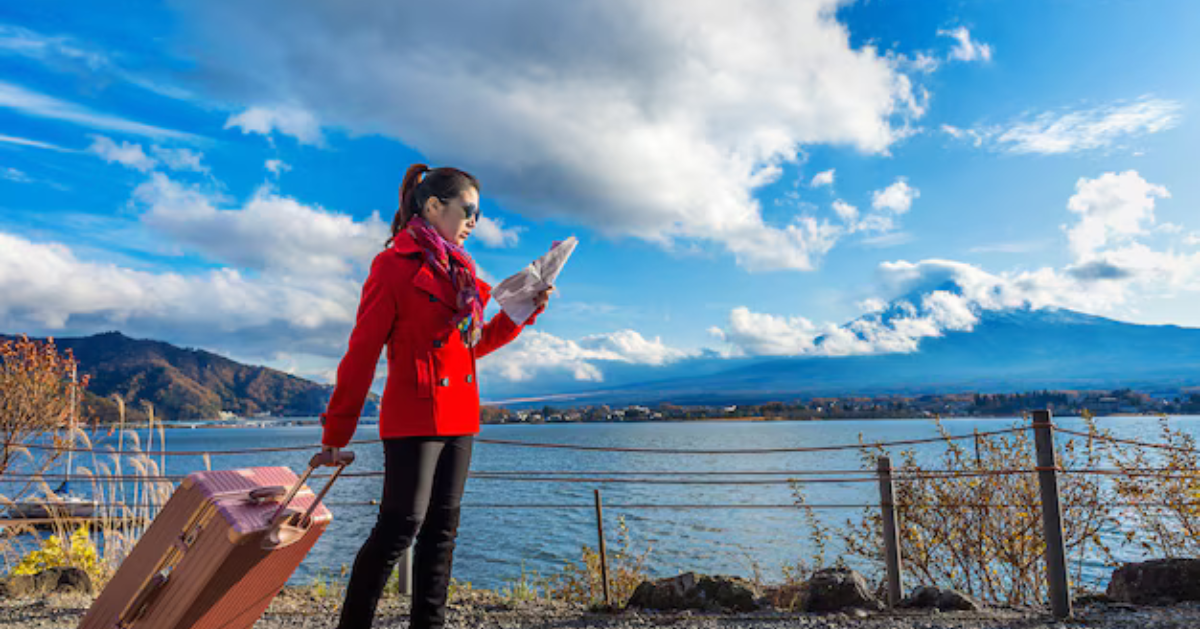Travel sickness, or motion sickness, is a common challenge many people face on the road, at sea, or in the air. The unpleasant symptoms — nausea, dizziness, and cold sweats — can take away from the joy of travel, turning an otherwise exciting journey into a super uncomfortable experience.
Fortunately, there are lots of things you can do to get rid of these symptoms and help you enjoy your trip. Here are the best tips to soothe travel sickness.
1. Choose Your Seat Wisely
The position you choose when traveling can have a huge effect on how you feel. Whenever possible, select a seat that experiences the least motion. For example:
- In a Car – Sit in the front passenger seat and keep your eyes on the road.
- On a Plane – Choose a seat over the wing, which tends to experience less turbulence.
- On a Boat – Go for a central cabin or a lower deck where motion is less noticeable.
- On a Train – Sitting in the forward-facing seat can help your body adjust to the movement.
Keeping your head still and resting it against the headrest can also minimize jarring movements that trigger motion sickness.
2. Avoid Heavy or Greasy Foods
What you eat before and during your travels can affect your chances of experiencing motion sickness. Avoid heavy, greasy, or spicy foods before you depart, as these can upset your stomach and make nausea worse. Instead, stick to light meals or snacks that are easy to digest, such as crackers, toast, or fruits like bananas and apples.
Eating small amounts of food more frequently is better than having a large meal, which could aggravate symptoms. It’s also essential to stay hydrated — drink plenty of water before and during your journey to keep dehydration at bay, as it can worsen travel sickness.
3. Drink Herbal Tea
One of the most soothing and natural ways to manage travel sickness is by drinking herbal tea. Specific herbal blends are known for their calming and anti-nausea properties, making them an ideal remedy for motion sickness.
Here’s what herbal teas are beneficial and how they can help.
- Ginger Tea – Ginger is well-known for its anti-nausea effects. It can reduce feelings of dizziness and the stomach discomfort that comes with travel sickness. Sipping on ginger tea before or during your journey can ease queasiness and help settle your stomach.
- Peppermint Tea – The refreshing aroma and flavor of peppermint can relieve nausea and calm the digestive system. Drinking peppermint tea can help reduce stomach cramps and improve your overall comfort while traveling.
- Chamomile Tea – Chamomile is a natural relaxant that can alleviate stress and anxiety, which may improve travel sickness. A warm cup of chamomile tea can help soothe your nerves and relax your stomach.
For a convenient and curated selection of herbal teas, consider subscribing to a tea subscription box. This option provides a variety of high-quality herbal blends delivered to your door, making it easy to enjoy soothing teas wherever your travels take you.
4. Use Aromatherapy
Aromatherapy can be an effective method for relieving motion sickness. Essential oils, such as peppermint, ginger, or lavender, are known to help alleviate nausea and dizziness. You can use these oils in several ways:
- Inhalation – Place a few drops of essential oil on a tissue or handkerchief and inhale deeply.
- Topical Application – Dilute essential oils with a carrier oil, such as almond or coconut oil, and apply a small amount to your wrists, temples, or behind your ears.
- Aromatherapy Diffuser – If you’re traveling by car, using a small portable diffuser can spread the aroma throughout the vehicle, providing relief from nausea.
The scent of these essential oils can help settle your stomach and promote a sense of calm, making your travel experience more comfortable.
5. Focus on the Horizon
Keeping your eyes focused on a stable point in the distance can help synchronize your inner ear with what your eyes perceive, reducing the confusion that often leads to travel sickness. This technique works well in various settings:
- While in a Car or Bus – Look out the front window and focus on the horizon.
- On a Boat – Fix your gaze on the horizon line where the sky meets the water.
- During Air Travel – If you have a window seat, look out and find a fixed point in the distance.
Avoid reading, watching videos, or staring at screens while traveling, as this can make symptoms worse.
6. Take Breaks and Get Fresh Air
If you’re traveling by car, plan for regular stops to stretch your legs, breathe in some fresh air, and reset your senses. Moving around can help reduce the symptoms of travel sickness, while fresh air can alleviate nausea and clear your head.
For sea travelers, spending time on the deck can provide relief, as the fresh air and view of the horizon may help reduce feelings of seasickness. Similarly, during air travel, using the overhead air vent to direct cool air toward your face can help ease dizziness and nausea.
7. Acupressure Techniques
Acupressure, a traditional Chinese medicine practice, involves applying pressure to specific points on the body to relieve symptoms. There is an acupressure point known as P6 (Nei-Kuan) located on your inner wrist, which is effective in reducing nausea.
To find the P6 point, place your three fingers horizontally across your wrist, then apply gentle pressure with your thumb between the two tendons. You can massage this point in circular motions or use acupressure wristbands designed specifically for travel sickness.
8. Try Over-the-Counter Remedies
If natural methods don’t fully alleviate your symptoms, over-the-counter remedies like antihistamines (e.g., dimenhydrinate or meclizine) can be helpful. These medications are known to reduce the symptoms of motion sickness, including dizziness and nausea.
Consult with a healthcare provider before taking any medication, especially if you have other medical conditions or are taking other prescriptions.
9. Stay Calm and Distract Yourself
If you’re scared of becoming ill while traveling, this can actually worsen travel sickness. Stay calm by practicing deep breathing exercises, listening to soothing music, or engaging in relaxing activities, such as meditation. Distracting yourself with light conversation, enjoying the scenery, or listening to an audiobook can also help take your mind off the symptoms.
Conclusion
Travel sickness doesn’t have to ruin your adventures. By employing these practical tips, you can enjoy a smoother and more comfortable journey. Whether it’s selecting the right seat, opting for soothing herbal tea, or using acupressure, the key is finding what works best for you.












